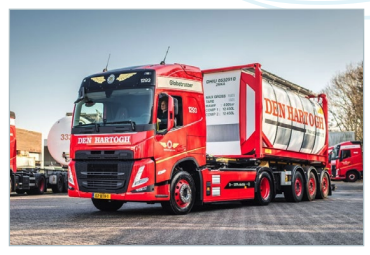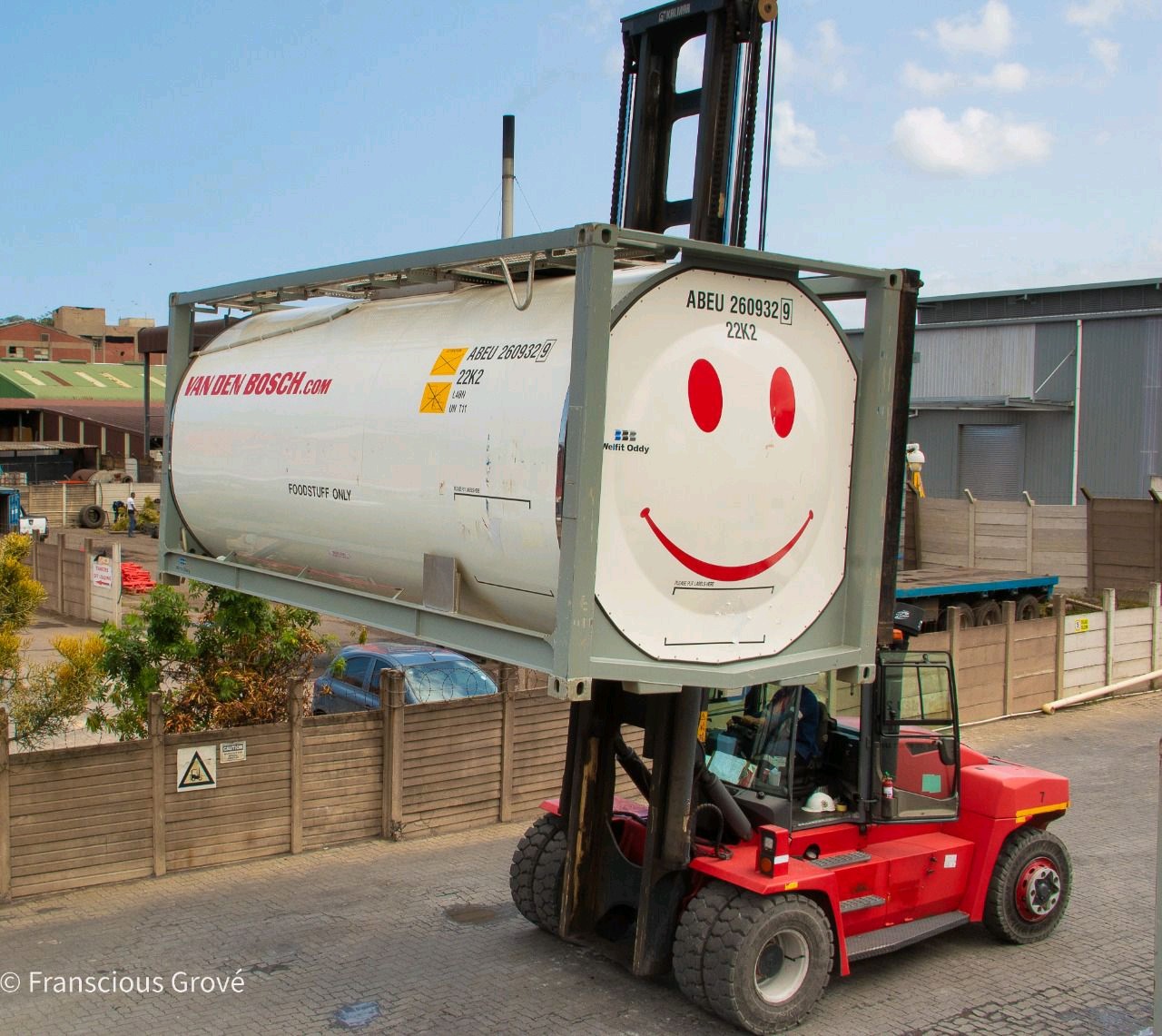PROJECT DESCRIPTION
Den Hartogh is actively spearheading the transition towards a fossil-free future within the logistics sector. Recognizing that part of transport will remain road based, the focus is not only on intermodal shift, but also on decarbonizing the necessary road transport.
In a significant milestone, Den Hartogh welcomed its first electric truck in February 2023, marking the first of many to join their fleet. This truck is active in the Rotterdam area for local shunting. Keeping the momentum, Den Hartogh ordered 4 additional electric trucks in Scandinavia and 1 in the Netherlands. In Sweden, due to the extremely low carbon impact of the grid and the direct charging by solar panels at our customer, the expected emission reduction is close to 100% – compared to diesel trucks.
Den Hartogh also operates 10 liquid biogas (LBG) trucks in Scandinavia, that achieve a CO2 emission reduction of 90% per truck. The company is also closely monitoring the developments of liquefied biogas (LBG) in western Europe and hopes to switch over the liquefied natural gas (LNG) trucks in Germany as soon as it is available.
Finally, Den Hartogh has introduced Hydrated Vegetable Oil (HVO) to their trucking fleet. HVO is a biodiesel that can substitute diesel without making alterations to the engine. HVO is sold via ‘insetting’, and with this methodology compensation for any route within the company’s transport network is possible. The amount of fuel that is required to do a route, is the amount Den Hartogh is obliged to refuel with HVO.
Den Hartogh is excited to expand the fleet with more sustainable fuels. By using both biofuels and electric trucks, the carbon footprint of road transport will be increasingly reduced in years to come. (c)
PROJECT IMPACT
EUROPUR 2023 A diesel truck covering an above-average distance annually emits approximately 95 tons of CO2 per year, while those driving average distances emit around 75 tons annually.
LBG leads to an effective emission reduction of 90% per kilometer driven (assuming an equal load and average Swedish emission figures for biogas). Given their aboveaverage mileage, this translates to a significant 85-ton reduction per truck. If this is expanded to the entire fleet, an emission reduction of over 850 tons from LBG alone is expected this year. Electric trucks have an effective emission reduction of 100% in Sweden (fully solar-charged) and 20% in the Netherlands (considering well-to-wheel and using grid average emissions). These typically only drive an average number of kilometers. Therefore, the reduction due to fleet electrification is expected to be 330 tons for next year.
Furthermore, Den Hartogh has replaced 170,000 liters of diesel with HVO in 2023 only, and plans to significantly increase consumption next year. Emission reduction depends on the batch and varies between 80-90%. Assuming an average, using HVO has already saved 460 tons of CO2 .
Altogether, the savings are expected to be more than 1.5 kilotons of CO2 by alternative fuels in a year. This is comparable to the annual emissions of 750 Dutch cars. ABOUT ROYAL DEN HARTOGH


